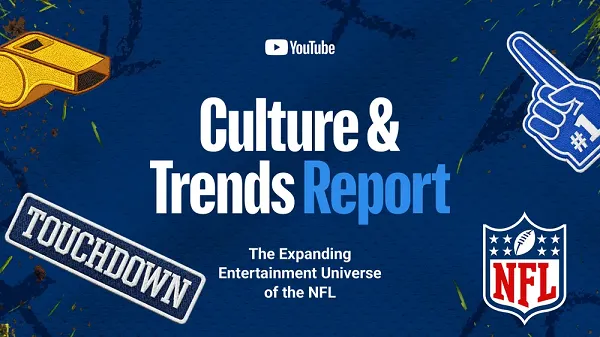How the Brahmaviharas Can Help Us Shed Our Egoism
In a recent episode of Tricycle Talks, scholar Jay Garfield discusses how the brahmaviharas can restructure our moral landscape and support us in leading happier, more meaningful lives. The post How the Brahmaviharas Can Help Us Shed Our Egoism...

Teachings Meditation Month 2025
In a recent episode of Tricycle Talks, scholar Jay Garfield discusses how the brahmaviharas can restructure our moral landscape and support us in leading happier, more meaningful lives.
By Jay L. Garfield Jan 20, 2025 Photo by Ken Cheung
Photo by Ken CheungOne of the dangers of the illusion of self is that it lays the foundation for moral egoism. Moral egoism is the idea that my own narrow self-interest is prima facie motivating and justifying. In other words, if I do something and explain that I did it because it made me happy, that by itself constitutes at least a basic justification for the action. The moment we allow a self into the picture, moral egoism is just hiding in the closet. As soon as I’ve got a self and everything else is an object for that self, there’s a fundamental ontological divide in the nature of being between me and everything else. I’m the subject; everything else is my object. I’m the agent of those actions; everything else is the patient of my actions. There’s something very special about me, and that becomes the unspoken justification for the morally egoistic attitude.
Once I have a morally egoistic attitude, the interests of others have to be defended as somehow overriding my own interests, and that can be very hard to do. I can always find reasons that my interests are actually more important, and that can give way to an attitude of every person for themselves—I might see another person and think, “She can pursue her own interests, but I don’t need to worry about them. I’ll pursue mine. Each to their own.” It’s a short step from there to seeing all of life as a competitive social arrangement where everything is a race, where the person who’s fastest wins. Under this arrangement, it’s acceptable for me to win goods and resources and leave everyone else impoverished because if they had competed harder, they would have gotten more.
When we buy into this model, it breeds not just a lack of interest in the welfare of others but possibly a kind of disregard for the welfare of others completely. We might hope that everything is remediated by an invisible hand that will result in all of this selfish, competitive behavior somehow generating equitable prosperity and happiness. But it won’t. It simply leads to self-alienation, alienation from others, and a deeply misleading reduction of happiness to possession or pleasure. This is what Karl Marx called commodity fetishism, when we think that somehow just having goods makes us happy. This leads to our alienation of our own being in the pursuit of what looks like success. None of this is good, and all of it, I think, is inevitably grounded in the self illusion.
My hope is that if we can extirpate the self illusion, we can take some strides in the direction of social justice. We can move toward caring for others, cultivating friendliness, having greater impartiality, and being able to take joy in the success of others and not only in our own vanquishing of them. In other words, we can move beyond the self illusion and generate a healthier society through practicing the brahmaviharas, or divine states.
The brahmaviharas are maitri, or friendliness; karuna, or care; mudita, the ability to take joy in the success and the accomplishments of others; and upeksha, or impartiality and equanimity. When we take those four together, they constitute a vision of the moral landscape that is antithetical to the landscape of moral egoism. Moral egoism gives us a sense of the moral landscape that is structured by my own identity and the relation of everybody else to me. In Buddhist philosophy, this is called the twofold self grasping of “I” and “mine.” That is, I grasp myself as a self, and I see the existence and the importance of everything else in terms of its relationship to me: Is that my friend or my enemy, close to me or far from me, useful to me or unimportant to me? Moral egoism thus encourages us to see ourselves as at the center of the moral universe, where we care less and less about others the further they are from us.
The world is full of sources of happiness, and most of them aren’t me.
Now, if you think for a moment, you’ll realize that that is a terrible distortion of what the moral landscape looks like. We can’t each be the center of the moral universe. The idea that we simply live our lives in disconnected moral universes, each of them centered on another self, makes the possibility of community and morality completely incomprehensible. Instead, we should be thinking of the moral universe as a kind of uniform space where our own position is no different in kind and no more or less special than any other position in that landscape. This is what happens when we think in terms of upeksha, or impartiality. When we do that, we see that our sources of happiness aren’t just our own achievements but also those of the people we are connected to. That allows us a much greater scope for joy. This is mudita, or sympathetic joy. It also enables us to recognize our interconnectedness with others and hence the fact that we’re bound by friendship, or maitri. It causes us to react to others’ distress with care and not with callousness, and that’s karuna.
These four aspects can help us reorient ourselves in the moral landscape. They ask each of us to recognize that the only way that I can succeed is if we succeed. The only way I can be happy is if we’re happy. And the only way my life can be meaningful is if our lives are meaningful. The recognition that the only kind of identity that we have is interdependent allows us to respond to others with gratitude, with care, and with friendship. And that’s the moral attitude that I think we ought to be encouraging. No matter how egoistic we might be, I think each of us will find that we’re happier when we shed our egoism and discover that the world is full of sources of happiness, and most of them aren’t me.
♦
This is an edited excerpt from a recent episode of Tricycle Talks. Listen to the full episode here.
This was originally published on April 24, 2022.
![]()
Thank you for subscribing to Tricycle! As a nonprofit, we depend on readers like you to keep Buddhist teachings and practices widely available.

 Konoly
Konoly 

































